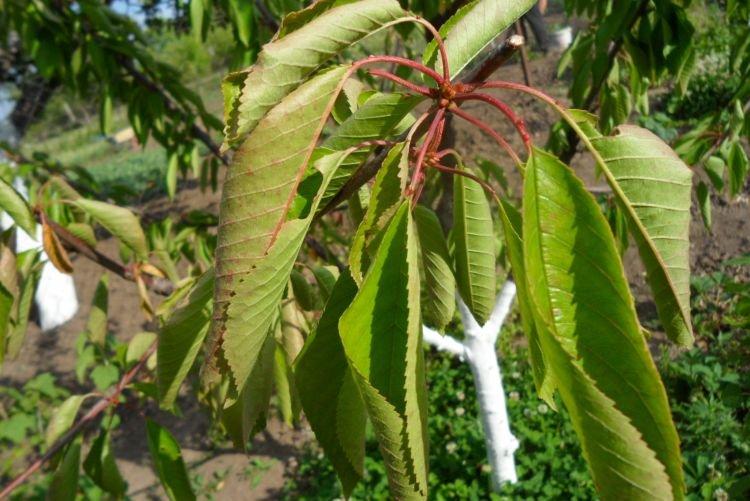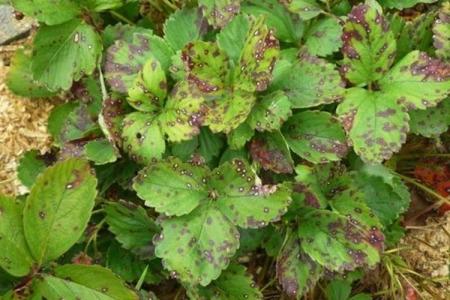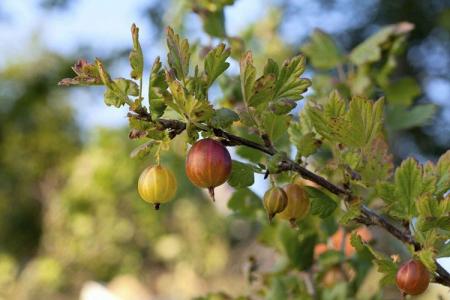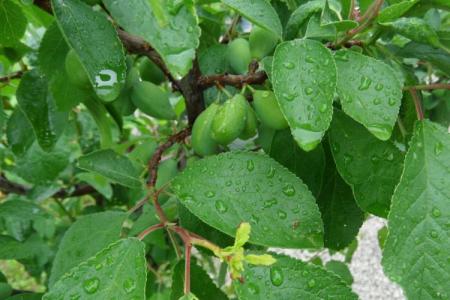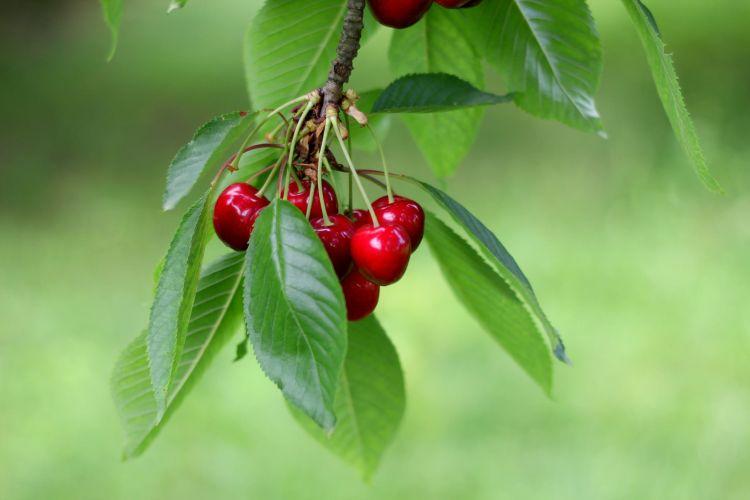
Cherry is indispensable for the brain, because it contains substances that slow down aging and improve memory. It's good for the skin and, of course, just delicious. But cherry trees also suffer from their own diseases and fungi, and the first thing the problems appear on the leaves!
Bumps and bumps on the leaves
When the cherry leaves are covered with strange growths, tumors must first be ruled out. And then there are pests or some fungi that are successfully treated with fungicides.
- When the cherry is affected by cytosporosis, small pimples and ulcers disperse along the branches and leaves;
- Small tubercles on the front of the leaves may indicate that aphids or weevils have been laid on the back;
- Tumors and bumps that grow rapidly and disperse in all parts of the tree are a sign of root cancer.
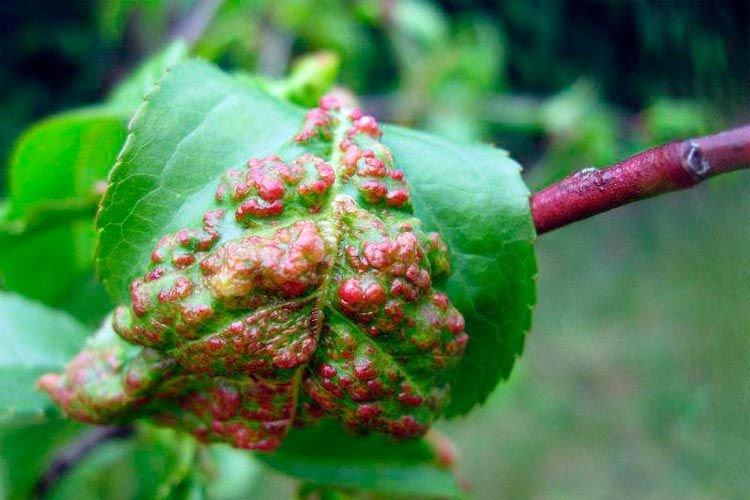
Leaves turn yellow and dry
At the end of the season, the leaves turn yellow and wither naturally - this is a normal biological cycle. But cherries certainly shouldn't behave like that in the height of summer!
- When cherries are too hot and there is not enough water, they dry out predictably;
- On wet leaves, the sun leaves yellow and dry burns;
- If you regularly fill the tree - the leaves may begin to turn yellow due to decay;
- Cherries wither and wither if the conditions of detention are violated. For example, if the ground does not suit her, after improper pruning or unexpected late frosts;
- Chaotic yellow spots all over the lamina may be a symptom of a virus. The mosaic does not heal and eventually destroys the tree.
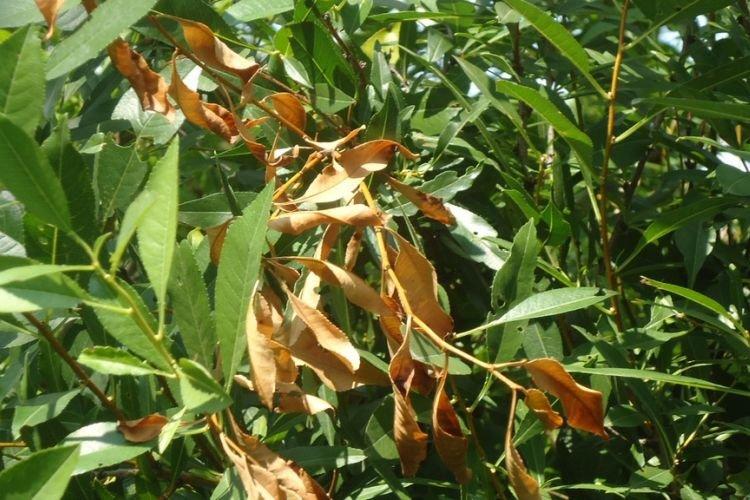
Brown spots on cherry leaves
If yellow spots often remain due to improper care, then brown ones are almost one hundred percent fungus. Fortunately, it is not even so important here which one, because the drugs for treatment are the same!
- Brown spot appears in the form of dark or dirty yellow spots, covered with a scattering of black dots;
- Monoliosis mainly affects fruits, but the leaves can begin to darken and rot;
- Bright red spots that grow throughout the leaf are a symptom of cherry rust. It is one of the most common garden fungi;
- If the spots are cast in an olive shade and seem textured - this is a cherry scab;
- Spots of klyasternosporiosis are grayish and with a crimson border, and in the future they dry up and fall out;
- Due to coccomycosis, the leaves are covered with small reddish specks;
- In case of septoria infection, white dots can be traced in the middle of the brown spots.
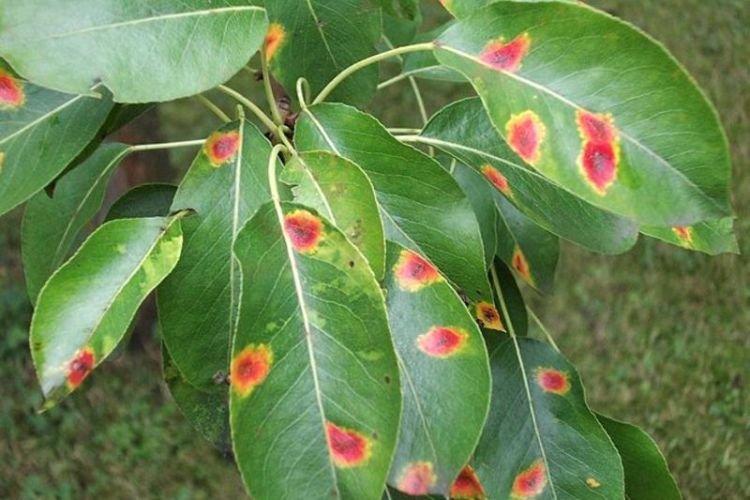
Cherry leaves turn black
Black patches and blotches are different fungal diseases that can be treated with fungicides. But if the cherries seem to be burning out - most likely, this is a bacterial lesion!
- Young cherries can turn black and wither if the root system is damaged, which cannot be restored;
- Due to improper use of dressings and medicinal preparations, you can burn the root - and the cherry will darken;
- Worst of all when it comes to bacterial infection. It rapidly infects not only leaves, but also shoots, as if burning them out;
- Black bloom on the leaves is a sooty fungus that is spread by insects. It adheres perfectly to sweet cherries with weakened immunity.
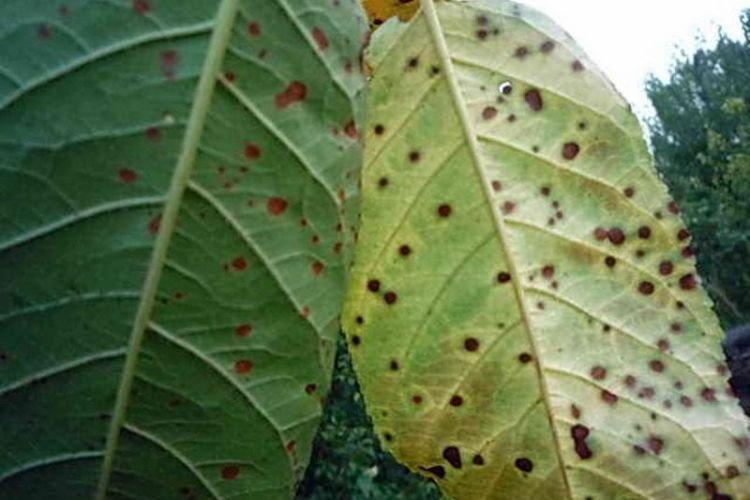
White bloom on cherry leaves
The velvety white coating looks like it can be wiped off with your finger. But we do not recommend doing this, because fungal spores grow on the cherry.
- The most common fungus with a white coating is powdery mildew. True, sometimes coccomycosis and other diseases can give such an effect. In any case, they are all treated with fungicides;
- If close up it turned out that the white bloom is a thin web of cobwebs, then the problem is in the spider mite.
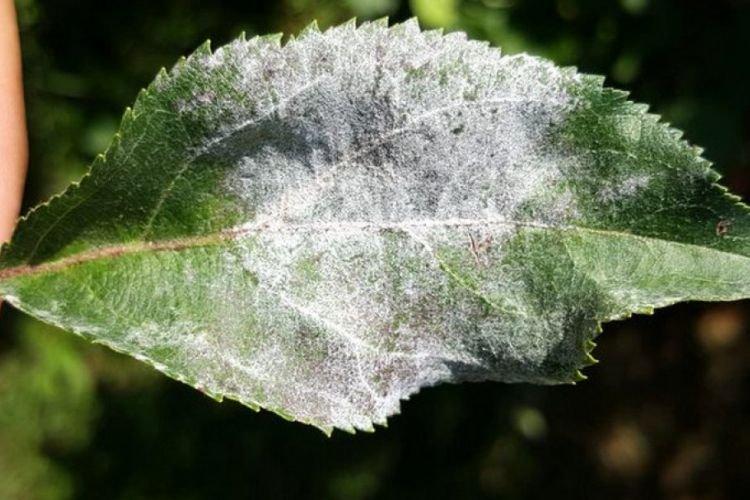
Pale and light leaves
Due to improper living conditions, the first thing to do is fade cherry leaves. But you can't leave the situation to chance, because in the long term you can lose your harvest!
- Young cherry leaves grow pale and weak, if in the spring they lacked nitrogen;
- Poor soil as a whole has a detrimental effect on the condition of the tree, so use complex fertilizers;
- If the leaf plates have become almost transparent, caterpillars and other pests eat them;
- Leaves turn pale from a chronic lack of sunlight, necessary for photosynthesis.
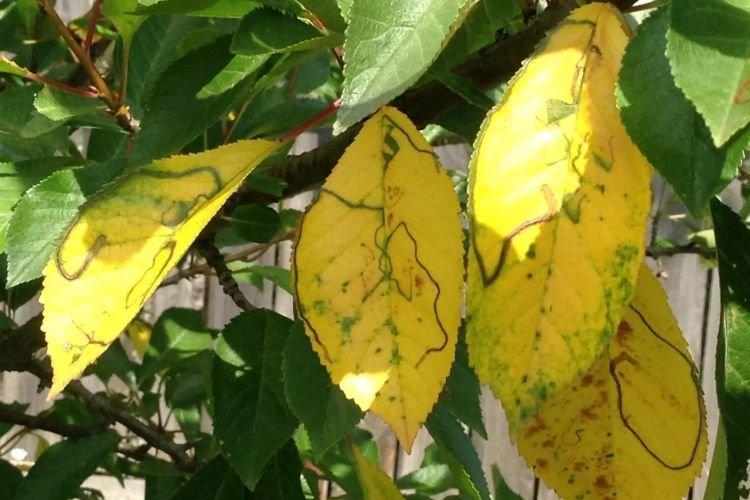
Cherry leaves curl
Viruses that infect a tree at the cellular level lead to the fact that the leaves of the cherry tree are already growing deformed. But if they suddenly began to fold, the problem is in leaving.
- Leaves wrinkle and wither in a too dense crown, because they lack light and air;
- Curliness leads to deformation and crushing of leaves, but rarely affects cherries;
- Sometimes the leaves of the cherry are curled from the fact that beetles eat them around the edges;
- If the leaves are rolled into tubes and covered with thin cobwebs, caterpillars pupated inside.
